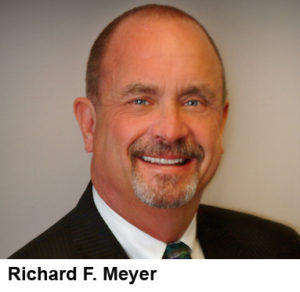Previously, we warned our clients and associates that the IRS would soon begin using private debt collectors to collect overdue taxes.
The lead article in our May newsletter detailed the planned change. The article, “Adding to Uncertainty for Scam Targets, the IRS Now Allows Private Debt Collectors to Dun Taxpayers” warned that some people getting these calls may be confused, especially seniors. For years the elderly have been warned of phone scams involving criminals pretending to be IRS agents, scheming to gain access to their personal information – and their money.
“Up till now, tax professionals have been able to reassure clients that the IRS would never harass consumers over the phone. However, under this new rule, private debt collectors may contact taxpayers by phone, which may make it more difficult to determine whether a scammer is targeting the taxpayer,” we said in that article.
Now we have an update on the expected IRS change, from CPA Theodore W. Johnson with the respected Columbus accounting firm PARMS + Company. Johnson warns the update is coming quickly.
Late last week, CPA Johnson wrote:
Back in April of this year the Internal Revenue Service announced their initiative to employ outside collection agencies to assist them in the collection of unpaid tax liabilities. The Internal Revenue Service announced that by summer thousands of taxpayers accounts will be turned over to private collection agencies for them to begin their work.
This initiative was set in place by the Fixing America’s Surface Transportation Act of 2015 (FAST Act). However, this is not the first time the Internal Revenue Service has tried this. The current initiative however has been put in place in part to help collect the large amount of unpaid tax amounts and to help supplement the continuingly depleted workforce of the Internal Revenue Service brought upon by constant budget cuts.
Now though many may not be fans of the Internal Revenue Service, I professionally understand the need for a competent and motivated organization doing the types of things they do. Without such an organization, tax revenues would dry up and the deficits that the country is already dealing with would become greater with the catastrophic impact rippling through our economy. This is just my personal opinion.
In their announcement the Internal Revenue Service indicated that prior to an account being turned over to collection, the taxpayer will receive communications from the Internal Revenue Service indicating that account as being turned over. The Taxpayer will have also received prior communications and attempts to collect these accounts.
Finally, the Internal Revenue Service reminded taxpayers to beware of criminals pretending to be from the government or a private collection agency. Phone scammers typically demand immediate payment by gift card or prepaid debit card. The private collection agencies working taxpayer’s accounts will never demand immediate payment using a specific method, the IRS explained. Likewise, private collection agencies will not threaten taxpayers with arrest or deportation, as criminals often do.
Theodore W. Johnson, CPA/CFF, CFE
Partner, PARMS + Company
To distinguish IRS from scammers
We remind our clients that a few safeguards will be put in place to distinguish these legitimate IRS-sanctioned contacts from scammers.
To begin with, the IRS will notify taxpayers by mail if it is turning their case over to a private debt collector. In addition, the debt collector is required to send a written notice once it receives the taxpayer’s information. The collection agencies are required to abide by debt collection laws, which prevent debt collectors from harassing consumers.
Another important difference: These IRS-sanctioned private collection agencies will only ask for payments to be made online at IRS.gov or by check. Checks should be made payable to the U.S. Treasury and sent directly to the IRS, not the private collection agency.
The collection agency will not ask for payment on a prepaid debit, iTunes or gift card – as scammers frequently do.
Should you encounter a request such as this, do not hesitate to contact the office of Browning & Meyer Co., LPA to verify the authenticity of the contact.
Unfortunately amid a confusing government move, senior citizens must remain extremely vigilant in protecting themselves from fraud.
Call our offices at 614-471-0085 or email [email protected] if we can be of assistance.